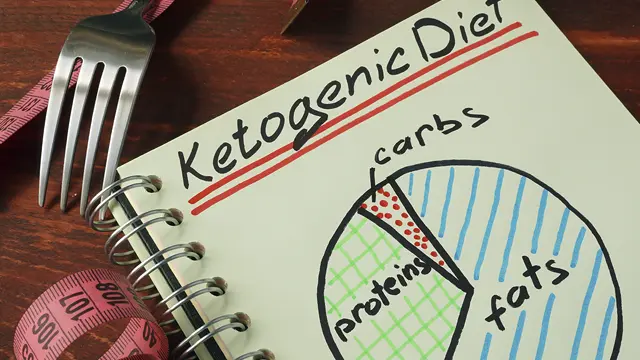BACK
How to use protein on the keto diet
The Ketogenic diet has grown in popularity for those seeking a fast and effective way to lose weight. Yes, protein is the key!

In the world of fitness, protein seems synonymous with bulking. But did you know that protein contains the same calories as carbohydrates?
The idea is to keep your body in a constant state of ketosis, which uses ketones (a bi-product of fat breakdown) instead of carbohydrates for energy. When glucose, the body’s primary fuel source is depleted, the body begins to break down fat stores, which produce ketones; an alternative energy source.
While the original ketogenic diet was developed to assist children with epilepsy, it has since evolved and grown in popularity for those seeking a fast and effective way to lose weight.
The general protocols of the keto diet include high amounts of fat, moderate protein, and very low carbohydrates. Many of the recommended foods already contain such ratios, like meat, cheese, and eggs. While it’s possible to reach your goals through diet alone, protein powders can make life much easier, and also provide some variety from a potentially monotonous diet.
The idea is to keep your body in a constant state of ketosis, which uses ketones (a bi-product of fat breakdown) instead of carbohydrates for energy. When glucose, the body’s primary fuel source is depleted, the body begins to break down fat stores, which produce ketones; an alternative energy source.
While the original ketogenic diet was developed to assist children with epilepsy, it has since evolved and grown in popularity for those seeking a fast and effective way to lose weight.
The general protocols of the keto diet include high amounts of fat, moderate protein, and very low carbohydrates. Many of the recommended foods already contain such ratios, like meat, cheese, and eggs. While it’s possible to reach your goals through diet alone, protein powders can make life much easier, and also provide some variety from a potentially monotonous diet.
HOW MUCH PROTEIN?
The guidelines for protein on a keto diet range between 20 - 25% of overall calories. This works out to around 0.68 - 1.0g per pound of lean body mass.
As an example, a sedentary person might consume 105g of protein per day, in order to maintain a state of ketosis. An active person might take in more than this as they’d have a higher protein requirement.
This doesn’t sound like a lot of protein, but for those eating up to 75% fat per day, it can be surprisingly hard to reach. A protein powder is also a good way of measuring the quantity of protein ingested, to help ensure you stay within the dietary guidelines.
As an example, a sedentary person might consume 105g of protein per day, in order to maintain a state of ketosis. An active person might take in more than this as they’d have a higher protein requirement.
This doesn’t sound like a lot of protein, but for those eating up to 75% fat per day, it can be surprisingly hard to reach. A protein powder is also a good way of measuring the quantity of protein ingested, to help ensure you stay within the dietary guidelines.
WHICH PROTEIN SUPPLEMENTS CAN HELP?
There are certain things required of a protein powder for people on a ketogenic diet.
One important note is to ensure that the sweetener used doesn’t contribute to the carbohydrate levels of the product. A natural sweetener which maintains low carb levels is ideal. For whey proteins, remember that lactose is still a form of carbohydrate, and although whey is lower in lactose than other dairy products, it is still worth keeping in mind.
Some keto guidelines suggest avoiding milk and yoghurt, which some may confuse with avoiding all dairy, including whey. These products aren’t recommended due to their lactose (sugar) content, and so choosing a low carb, low lactose whey powder is acceptable within the keto guidelines.
Another consideration is your ability to absorb protein. Some proteins are more easily digested than others, although the key for optimal absorption is a healthy gut. Chances are, if you’re on a keto diet, your body is having to produce more enzymes and gastric acid to assist in the breakdown of fat and protein.
Using a protein powder which is easily digested is a great start, and many also contain digestive enzymes or herbs which support the process. Hydrolyzed whey protein, sprouted rice protein, or blends with added digestive support are all great ideas for those on a keto diet.
Any protein which is very low carb is suitable for the ketogenic diet, and those which contain digestive support rank even higher in terms of what may be useful.
One important note is to ensure that the sweetener used doesn’t contribute to the carbohydrate levels of the product. A natural sweetener which maintains low carb levels is ideal. For whey proteins, remember that lactose is still a form of carbohydrate, and although whey is lower in lactose than other dairy products, it is still worth keeping in mind.
Some keto guidelines suggest avoiding milk and yoghurt, which some may confuse with avoiding all dairy, including whey. These products aren’t recommended due to their lactose (sugar) content, and so choosing a low carb, low lactose whey powder is acceptable within the keto guidelines.
Another consideration is your ability to absorb protein. Some proteins are more easily digested than others, although the key for optimal absorption is a healthy gut. Chances are, if you’re on a keto diet, your body is having to produce more enzymes and gastric acid to assist in the breakdown of fat and protein.
Using a protein powder which is easily digested is a great start, and many also contain digestive enzymes or herbs which support the process. Hydrolyzed whey protein, sprouted rice protein, or blends with added digestive support are all great ideas for those on a keto diet.
Any protein which is very low carb is suitable for the ketogenic diet, and those which contain digestive support rank even higher in terms of what may be useful.
Popular Reviews
The content on this site has not been written, reviewed or endorsed by a medical professional. We assume no liability for the misuse of supplements and recommend you review the label of any product, as well as consulting with your health care professional.
We are a participant in the Amazon Services LLC Associates Program, an affiliate advertising program designed to provide a means for us to earn fees by linking to Amazon.com and affiliated sites.
We are a participant in the Amazon Services LLC Associates Program, an affiliate advertising program designed to provide a means for us to earn fees by linking to Amazon.com and affiliated sites.
© 2025 ProteinPowder.com




